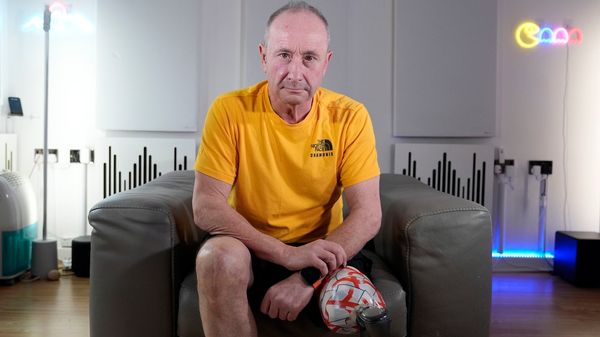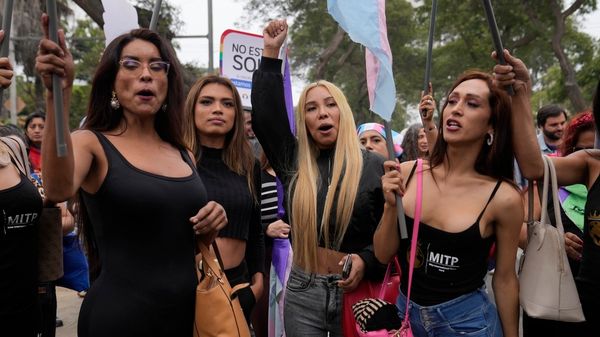October 19, 2011
Former Male Prostitute Helps Hustlers Leave R.I. Streets
Joe Siegel READ TIME: 3 MIN.
For 10 years, Rich Holcomb worked as a prostitute on the streets of Montreal. Now he is trying to help others.
In the summer of 2010, Holcomb surveyed 50 men who have earned money hustling on the streets of Providence. He has started a program dedicated to reaching out to male sex workers-Project Weber, named in honor of Roy Weber, a 19-year-old hustler who was found dead on Christmas Day in 2003. Weber's murder remains unsolved.
Male sex workers work night and day on the streets of downtown, around the Amazing adult bookstores and areas around the Mega-Plex bathhouse. They typically range in age from 18 to 55.
"One participant was badly beaten and bruised from a random assault by several men from the night before and many appeared malnourished and sick with ripped and unwashed clothing," recalled Holcomb.
His research also showed that most male sex workers consider themselves heterosexual and only sell themselves for drugs-and many want to stop using. "They have no home, no families," added Holcomb. "They don't know how to break the cycle."
Some of the IV drug users Holcomb interviewed reported having sex with as many as a dozen men per day. He notes these men are at an "extremely high risk" of HIV due to unprotected sex with multiple anonymous partners, needle sharing and other risky behaviors.
The sex workers were willing to open up to Holcomb and his friend James Waterman because they were former prostitutes who could relate to what they were going through.
Holcomb first became aware of the presence of male prostitutes in Providence when a man approached him in Kennedy Plaza when he was 10. As a teenager, Holcomb lived in Montreal. He became addicted to crack cocaine and began to sell his body to support his drug habit.
"I didn't feel very good about myself," said Holcomb, recalling that his life became a "vicious cycle" of sex and drugs.
Holcomb had been sexually abused as a child and had to deal with an abusive father, who taunted him about his sexuality. "I wasn't interested in sports," said Holcomb. "(My dad) called me faggot. I knew I couldn't please him."
Life on the street was a nightmare for Holcomb, who said he was "close to dying." After 10 years of selling his body, Holcomb realized he needed to get his life together, so he sought treatment for his drug and alcohol addiction.
"I attribute my recovery to a 12 step program and the loving support that I found with other recovering addicts who have similar stories," said Holcomb. "I hit some obstacles with the many mainstream substance abuse treatment centers I attended who were not equipped to provide support for male prostitutes. The Pride Institute in New Jersey was helpful to me because they had staff trained and familiar with what I was dealing with."
Now 35, Holcomb is determined to offer a way out for male sex workers in Providence, many of whom travel here from other states due to the city's sex-friendly climate. Rhode Island lacks the resources needed to provide counseling and treatment for them. Holcomb hopes to open a drop-in center that will have access to HIV testing and condoms.
He cited stigma, personal prejudice and lack of knowledge as reasons he has not received cooperation from some local social service agencies. Others, however, have offered support.
The Rhode Island Community Planning Group's MSM task force encouraged the 2010 study; while AIDS Care Ocean State offered access to condoms, clean needles, and safe sex materials to conduct weekly outreach to male sex workers. Holcomb hopes to encourage others to find the strength to leave what he describes as a destructive lifestyle.
"I'm grateful to be alive and out of that lifestyle," he said.
Joe Siegel has written for a number of other GLBT publications, including In newsweekly and Options.







